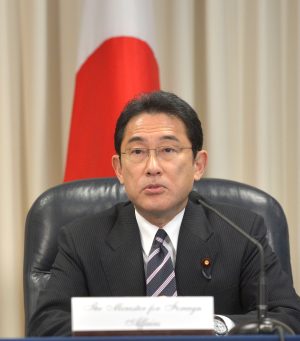On Wednesday former Japanese Foreign Minister Kishida Fumio became the face of Japan’s ruling Liberal Democratic Party (LDP) and effectively Japan’s 100th prime minister after defeating administrative reform minister and predicted front runner Kono Taro in a four-way LDP leadership race. Kishida will be formally elected as prime minister on Monday, but his leadership will be tested against public opinion in a general election as early as November 7.
On September 3, outgoing Prime Minister Suga Yoshihide announced he would not run for re-election as LDP leader – and as Japan’s prime minister – after serving just one year in office. Suga had suffered a steep fall in popularity over his handling of the COVID-19 pandemic. His resignation kickstarted an intense two weeks of public campaigning and strategic jostling for votes from LDP lawmakers in the Diet as well as votes from rank-and-file paying party members across Japan’s 47 prefectures.
The LDP selects its leader in a two-round election process. In the first round there are a total of 764 votes up for grabs, evenly divided between LDP lawmakers and rank-and-file party members. Kishida finished the first round only one vote ahead of Kono, 256 to Kono’s 255. The other two candidates, Takaichi Sanae and Noda Seiko, finished the round with 188 and 63 votes, respectively. In the absence of a majority winner, the top two contenders competed in an immediate runoff, which saw Kishida win a comfortable 257 votes against 170 for Kono.
The main bulk of Kishida’s votes came from LDP lawmakers in the Diet. This backing ultimately paved the way for his victory, despite Kono being the clear favorite among rank-and-file members across Japan. Kono won the support of 39 prefectures compared to seven prefectures for Kishida.
Kishida’s moderate policies made him a safe choice and the least likely to shake up the conservative status quo of the LDP political elite while in power. But there are growing concerns among some LDP lawmakers, such as former LDP leadership candidate Ishiba Shigeru, that there is a widening gap between the voices of the people and the LDP establishment, which could damage the party’s chances at the autumn general election.
In sharp contrast to Kishida, Kono has garnered a reputation as an outspoken political maverick. He holds non-conformist views on social issues and has come out in favor of same-sex marriage and support for married couples keeping different surnames, which clashes with the LDP’s championing of traditional family values.
As Japan’s vaccine minister, he has also gained a large social media following with younger constituents and has crafted a digital and social media savvy public image. Despite Kono’s strong electability, his progressive position on controversial issues is likely what led to Kishida and Takaichi forming an alliance ahead of the vote to have each other’s supporters back whoever advanced to the second-round runoff in an effort to suppress Kono’s bid.
While Kishida has the backing of the LDP establishment, he has little public support. In a matter of six weeks he is tasked with building a public profile, winning over the public, and leading a divided LDP through a general election based on the assumption of either low public expectations or public tolerance for the status quo.
In his first press conference as LDP leader, Kishida vowed to focus on intra-party unity, improving communication and rebuilding public trust in the LDP as a party that listens to the voices of the people. As Japan emerges from the pandemic, Kishida pledged to enact a “new form of capitalism” to address income disparity through an “income doubling plan” and will compile an economic stimulus package worth “hundreds of billions of dollars.”

































